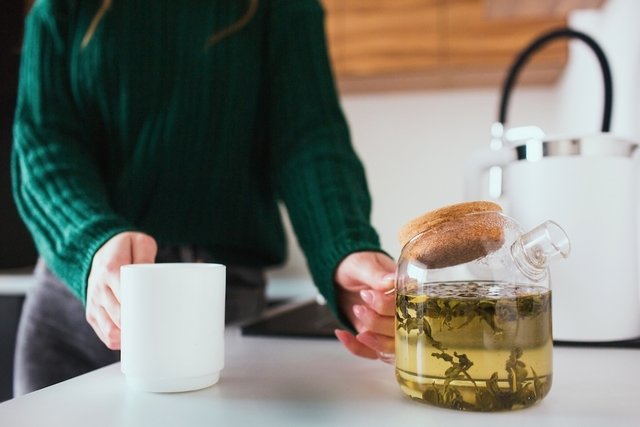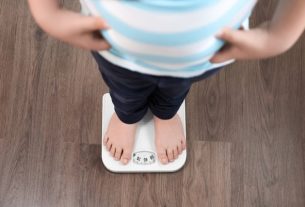Home remedies for insomnia are an excellent natural way to encourage sleep, without the risk of developing the common side effects of medications, such as dependence or worsening insomnia in the long term, for example.
Although its effect is not as immediate as pharmacy medicines, its action is more natural for the body and does not cause any type of dependence. Furthermore, when used regularly, home remedies help regulate sleep cycles, allowing the effect to become faster and faster.
When using home remedies, it is also advisable to take other measures to facilitate sleep, such as avoiding blue lights in the room and avoiding stimulating activities in the 30 minutes before bedtime. Check out these and other tips to help you sleep better.

Top home remedies
Some home and natural remedies that can be used to combat insomnia are:
1. Melatonin
This is a type of hormone that is produced naturally by the body and is therefore not popularly included in the category of “home remedies”. However, melatonin is the main responsible for sleep, having markedly proven effects against insomnia in several studies.
It is possible to increase melatonin production naturally. To achieve this, it is advisable to avoid stressful situations at the end of the day, reduce exposure to blue lights, such as your cell phone screen, give preference to indirect and yellow lighting indoors, and invest in the consumption of foods rich in tryptophan, such as peanuts, eggs or chicken meat. See a more complete list of foods with tryptophan.
People with a very busy lifestyle or who have tried to increase their melatonin levels naturally, but have not had good results in improving their sleep, can also opt to use a melatonin supplement, which can be purchased at pharmacies and some product stores. natural. In this case, supplementation should always be guided by a doctor or pharmacist.
Check out other remedies that may be indicated for treating insomnia.
2. Valerian
Valerian root tea has shown potent action against mild to moderate insomnia in several studies, as it has anxiolytic and sedative properties that help you fall asleep more easily.
Unlike pharmacy sedatives, valerian does not cause any type of dependence and, therefore, can be used safely. However, its effect may take up to 4 weeks to be noticed, as the plant’s substances slowly shape the sleep cycle.
Ingredients
- 1 tablespoon of dry valerian root;
- 300 ml of water.
Preparation mode
Bring the water and valerian root to a boil over medium heat for 10 to 15 minutes and then remove from the heat and strain. Let it cool and drink 1 cup about 30 minutes before bed.
In addition to tea, valerian can also be consumed in the form of a supplement, and should be taken in a dose of 300 to 900 mg of the 0.8% extract. This dosage may need to be adapted by an herbalist or doctor, according to the severity of insomnia and other characteristics of the person.
Valerian should be used with caution in pregnant women and patients with some type of liver problem.
3. Hops
Hops are the same plant that is used in the production of beer, but in the form of tea it has shown a positive effect against insomnia. Its action has been related to its ability to prevent the degradation of GABA, a substance that helps relax the nervous system, in addition to appearing to improve the action of melatonin receptors, enhancing the effect of the main hormone responsible for sleep.
Ingredients
- 1 teaspoon of hops;
- 1 cup of boiling water.
Preparation mode
Add the hops to the boiling water and let it rest for approximately 10 minutes. Then strain and take it, 30 to 60 minutes before bedtime.
This tea should not be used during pregnancy without supervision from a doctor or herbalist.
4. Lemon balm
Lemon balm leaves have been used for several centuries to treat cases of insomnia and, in recent studies, their action has been justified by their ability to prevent the destruction of GABA, a type of neurotransmitter that helps calm the nervous system and facilitate sleep.
Ingredients
- 2 teaspoons of lemon balm leaves;
- 500 ml of boiling water.
Preparation mode
Place the lemon balm in a teapot and cover with boiling water. Cover, let cool, strain and then drink, preferably 30 to 60 minutes before going to sleep.
Lemon balm can also be consumed in the form of capsules, with dosages between 300 and 500 mg per day, or drops. In these cases, the dose must always be adjusted by a doctor or herbalist. Lemon balm should not be used during pregnancy or breastfeeding without a doctor’s advice.
5. Passionflower
Passionflower is the passion fruit plant and, like lemon balm, this medicinal plant has been used for many years to help treat insomnia. Although there are still few studies on the use of this plant for insomnia, many of its substances have great potential to help with treatment.
For example, chrysin, which is the main flavonoid in passionflower, has demonstrated a strong action on benzodiazepine receptors, which are the same receptors used by pharmaceutical anxiolytic medications, which cause relaxation and help with sleep. Furthermore, in research carried out on rats, passionflower extract helped a lot to prolong sleep time.
Ingredients
- 1 to 2 tablespoons of passionflower;
- 1 cup of boiling water.
Preparation mode
Add the water with the passionflower and let it rest for 5 to 10 minutes. Then, let it cool, strain and drink about 30 minutes before bed. Passionflower can often be added to valerian tea, for example, to obtain a stronger effect.
This tea should be avoided in pregnant women.
6. Juniper
Juniper essential oil has sedative properties, so it can promote sleep, helping to combat insomnia and improve sleep quality. The essential oil can be used to inhale directly from the bottle, and the plant can be used to prepare tea that should be taken before bed. Learn more about juniper.
Ingredients
- 2 to 3 juniper berries;
- 1 cup of boiling water.
Preparation mode
Add the juniper berries to the boiled water, cover and let it rest for about 5 minutes. Then strain and drink 1 to 3 cups a day for a maximum of 6 weeks.
Both essential oil and juniper tea should be avoided by pregnant women.
When to go to the doctor
Although home remedies can help treat several cases of insomnia, there are also several cases in which they are not enough, especially when there are other causes. Therefore, it is advisable to go to the doctor when there is no improvement in insomnia after 4 weeks of treatment with a home remedy or when insomnia interferes with quality of life, as it may be necessary to identify the correct cause and start the most appropriate treatment.

Sign up for our newsletter and stay up to date with exclusive news
that can transform your routine!
Warning: Undefined array key "title" in /home/storelat/public_html/wp-content/plugins/link-whisper-premium/templates/frontend/related-posts.php on line 12
Warning: Undefined array key "title_tag" in /home/storelat/public_html/wp-content/plugins/link-whisper-premium/templates/frontend/related-posts.php on line 13



